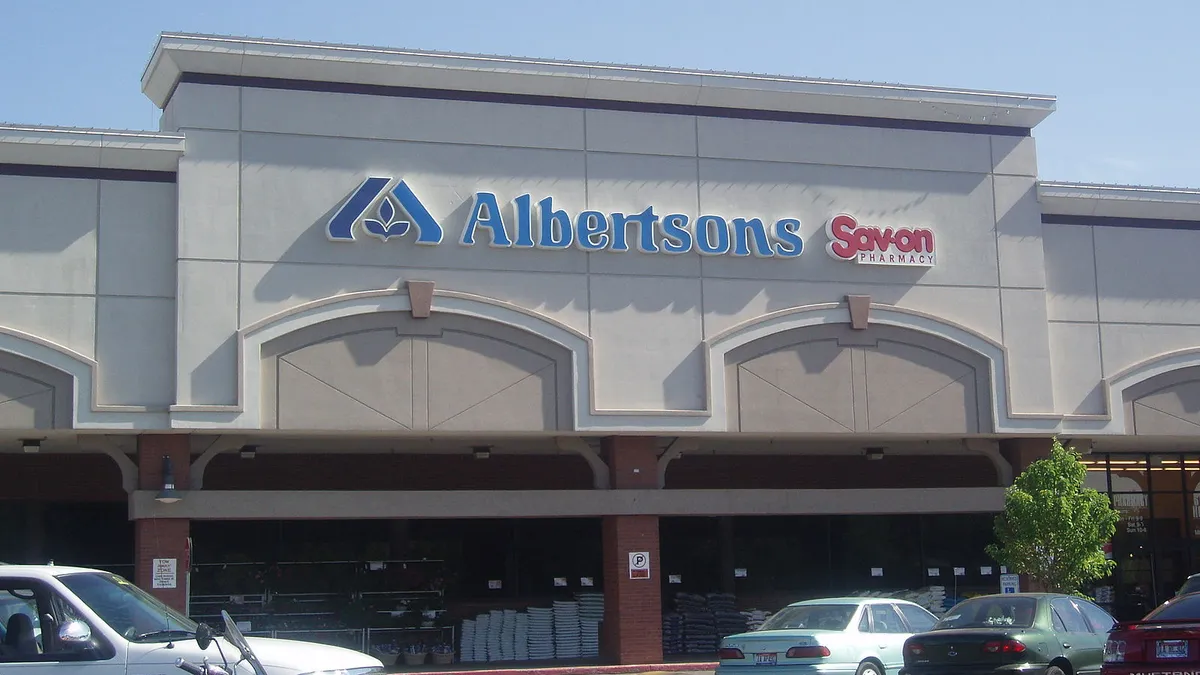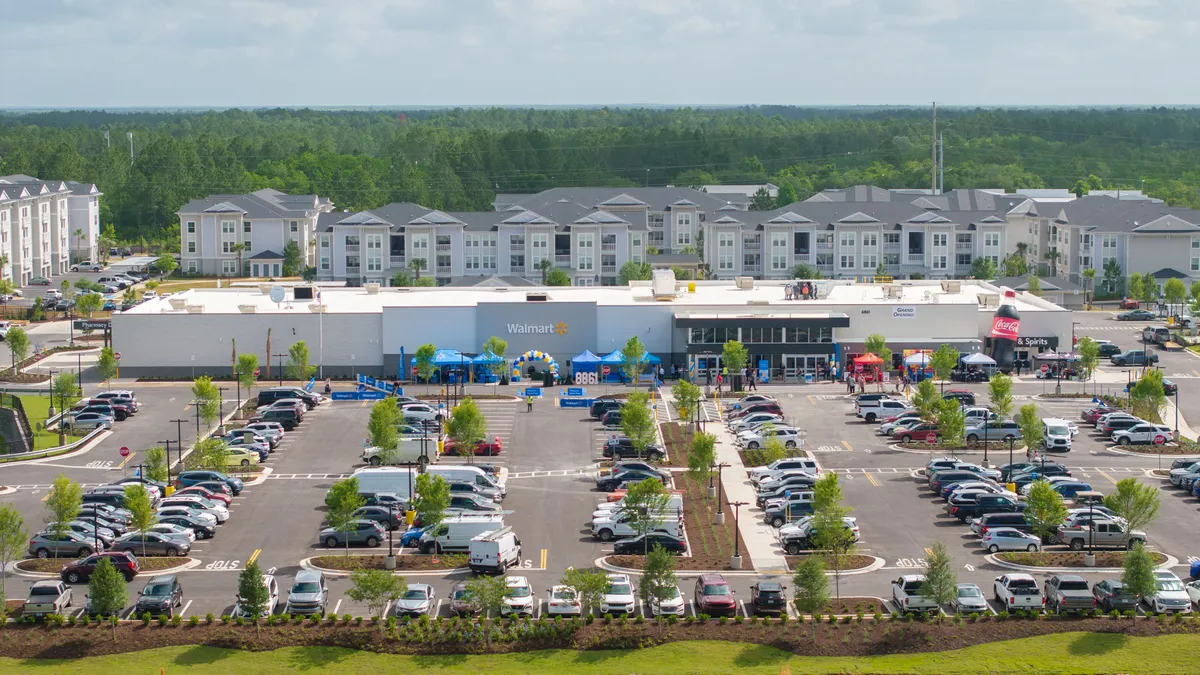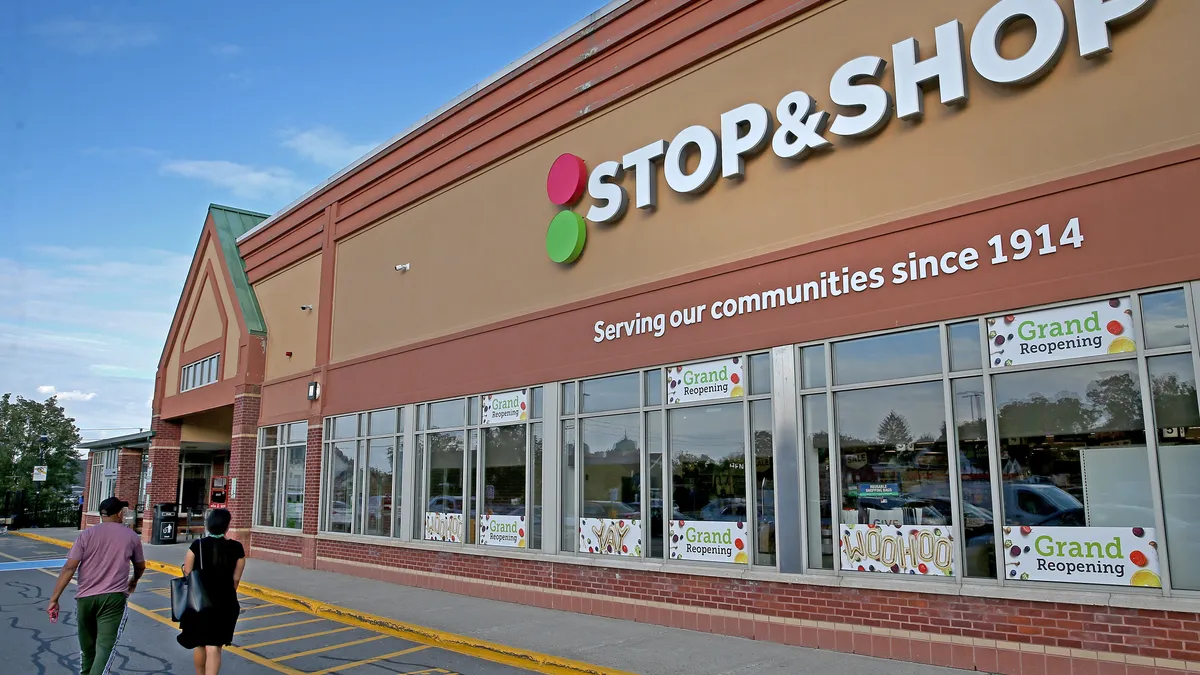Dive Brief:
- During an earnings call yesterday, Albertsons reported a $17.7 million net loss — a marked improvement over last year’s $204.9 million loss during the same period. Net sales up 1% to $18.7 billion, with same-store sales up .2%. The company said it expects same-store sales to fall in the range of 1.5% to 2% for the remainder of fiscal 2018.
- The Boise, Idaho-based company also reported a 108% increase in e-commerce sales during Q1 2018 that reflects ongoing investments in store pickup, home delivery and meal kit company Plated. The company offers home delivery from the majority of its locations through its own platforms and Instacart. It’s also quickly expanding Drive Up & Go, its click-and-collect service, from 94 locations to more than 500 by the end of this year.
- With opposition growing to its proposed merger with Rite Aid, Albertsons executives talked up the benefits of the deal during the call, stating it would increase its footprint in key markets, offer more merchandising opportunities and be less operationally complex than the merger with Safeway.
Dive Insight:
Asked during yesterday’s earnings call how the company will raise its same-store sales rate in line with its full-year guidance, president Jim Donald said Albertsons needs to continue delivering on its key initiatives, including growing its e-commerce footprint, reducing debt, updating its stores and expanding its loyalty initiatives.
“It’s a continuation of all the things we’re doing,” he said.
It’s hard to argue with that assessment when looking closely at Albertsons numbers. The company trimmed its losses significantly and raised adjusted earnings before interest, taxes, depreciation and amortization (EBITDA) to $815.8 million, or 4.4% of sales, compared to $771.7 million, or 4.2% of sale last year. Albertsons also reported improved gross margins, and a 28% increase in signups for its Just For U digital coupon and loyalty program, which promotes higher sales among members.
The grocer’s spike in e-commerce sales may offer the best indication that it's positioning itself for the future. The company has cast a wide net so far with home delivery service, which includes the company’s own platforms through retailers like Safeway and Jewel-Osco, as well its nationwide deal with Instacart. Meanwhile, its store pickup service, Drive Up & Go, is gaining ground quickly, with 500 stores set to come online by the end of this year. According to Donald, consumers who use the service often come into stores and spend more on fresh items.
“We think we’re getting a win-win out of this,” he said.
Although the company didn't break out sales of its Plated meal kit service, the acquisition no doubt contributed significantly to Albertsons online boost. Plated is a leader in the subscription-based meal kit game, and it got a head start on competitors when it started rolling out kits in Albertsons stores late last year. The retailer plans to have the meal kits in more than 650 stores by the end of this year.
Albertsons also reported strong performance by its private brands, which now comprise an all-time high 24% of total sales. The company launched more than 400 new products during the first quarter and plans to release more than 700 more throughout the year with a particular emphasis on its natural and organic lines, O Organics and Open Nature. O Organics saw sales grow by 10.2% during the first quarter and is now a $1 billion brand. Together, Open Nature and O Organics comprise 23% of Albertsons total natural and organic sales.
Both private label and e-commerce sales stand to grow with Albertsons’ pending merger with Rite Aid, which comes up for a shareholder vote next month and is expected to close later this year. The deal would effectively double Albertsons footprint.
However, there has been growing opposition to the deal from investor groups, and so Albertsons executives took every opportunity Monday to pump up the merger. Bob Miller, Albertsons CEO, noted that the retailer's pharmacy customers spend 3.5 times as much with the company per transaction compared to regular customers, and that the merger would result in an estimated $375 million in annual run-rate synergies over three years.
In a report issued back in April, investment firm Moody’s wrote that a combined Albertsons-Rite Aid could see significant cost savings and sales benefits, but the two companies must execute their integration seamlessly or face accelerating losses due to competitive pressures and a high debt load.
Assuming the merger does go through, it will give Albertsons key scale advantages and access to valuable markets. However, with competitors Amazon, Walmart and Kroger continuing to grow and innovate, the company has a lot of work ahead to effectively grow its business.










